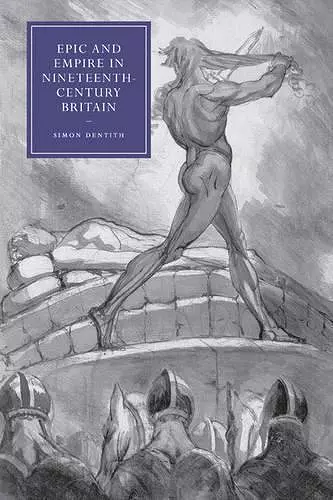Epic and Empire in Nineteenth-Century Britain
Format:Paperback
Publisher:Cambridge University Press
Published:19th Nov '09
Currently unavailable, and unfortunately no date known when it will be back
This paperback is available in another edition too:
- Hardback£90.00(9780521862653)

The epic genre continued to be important in the nineteenth century despite its apparent anachronism.
Epic poetry in the Homeric style was widely seen as an ancient and anachronistic genre, yet Victorian authors worked to recreate it for the modern world. Simon Dentith explores the relationship between epic and the British national identity in the works of Scott, Arnold, Elizabeth Barrett Browning, Morris and Kipling.In the nineteenth century, epic poetry in the Homeric style was widely seen as an ancient and anachronistic genre, yet Victorian authors worked to recreate it for the modern world. Simon Dentith explores the relationship between epic and the evolution of Britain's national identity in the nineteenth century up to the apparent demise of all notions of heroic warfare in the catastrophe of the First World War. Paradoxically, writers found equivalents of the societies which produced Homeric or Northern epics not in Europe, but on the margins of empire and among its subject peoples. Dentith considers the implications of the status of epic for a range of nineteenth-century writers, including Walter Scott, Matthew Arnold, Elizabeth Barrett Browning, William Morris and Rudyard Kipling. He also considers the relationship between epic poetry and the novel and discusses late nineteenth-century adventure novels, concluding with a brief survey of epic in the twentieth century.
Review of the hardback: 'Dentith's reading of the late-Victorian imperial adventure story … is extremely perceptive, and leads into an illuminating discussion of the divided consciousness at work in T. E. Lawrence's Seven Pillars of Wisdom …' Literature & History
'In this cogent and clearly written book Simon Dentith gives a convincing account of the part played by epic in nineteenth-century literature and culture, which he shows to have been larger than we might casually assume.' The Journal of William Morris Studies
ISBN: 9780521123570
Dimensions: 229mm x 152mm x 15mm
Weight: 390g
260 pages